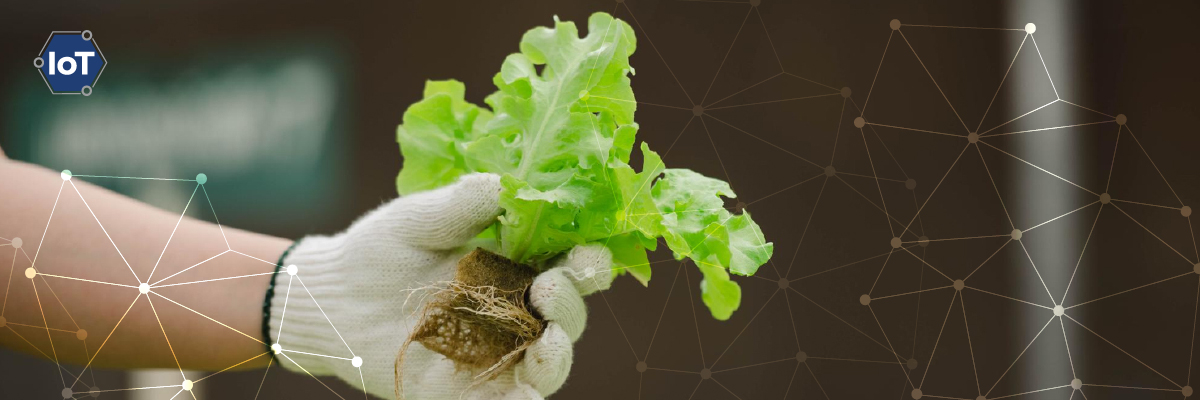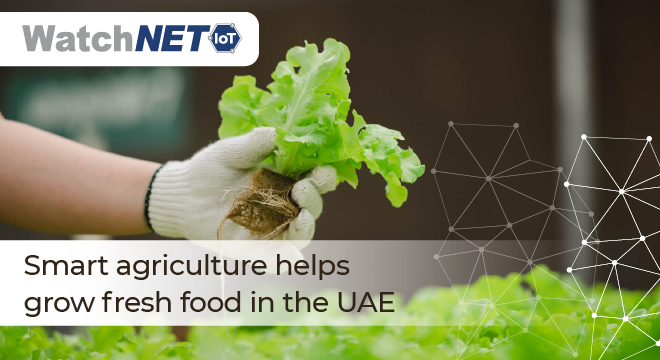
The demand for food in the future is going to increase tremendously. Especially for countries like the UAE with little arable land, accounting to only about 5% of its total land and water scarcity. IoT plays a major role in these regions to ensure sustainable production and is the driving force behind smart farming to make agriculture process and data driven, thereby making the entire process more efficient. IoT trends in agriculture in the Middle East are expected to more than double by the year 2025.
There have been constant efforts to modernize the field of agriculture and smart agriculture is the key to this. So what is smart farming/smart agriculture? Smart farming is a process or way to efficiently create an input output ratio, using the available resources optimally. The farmers of today have already started using smart farming solutions, making use of technology to the fullest. Low cost IoT sensors and data insights will benefit the field of agriculture:
- Increased Production – Today’s agricultural practices are at a no-wastage and maximum production framework, and this is possible using the IoT route. Optimized crop treatment, accurate planning and harvesting have increased production rates.
- Conservation of Water – Soil moisture sensors, drone technology and water sensors help identify the source of water and the optimum place for plantation, ensuring the usage of water only as required.
- Lower Costs – IoT allows for automated process, plantation and harvesting. This reduces the human labour involved, thereby reducing the operational costs and the costs involved in errors.
- Real-Time Monitoring – With IoT devices and sensors fitted throughout the farm, it is easy for farmers to monitor the water levels, temperature at any point, humidity and soil conditions from time to time and accelerate their decision making process. This also enables them to monitor their fields remotely, without the need for their physical presence.
- Sustainable Growth – All the technology pushes us towards conservational goals, with reduced water usage and sensible land usage. This directly aids the environmental footprint.
- Improved Evaluation – With the IoT trends in place, it is now possible to accurately evaluate the condition of the land, the suitability for crops, and also the accurate estimation of the harvest. This further helps in better planning and logistics.
UAE, which has been a trailblazer in many fields, and where 80% of the food is imported, is investing heavily in smart agriculture. A $272 million agri-tech support program is planned to tackle the food and water challenges. This includes vertical farming, new irrigation systems and improvised fertilizers for better growth of crops!
With new age challenges, it is only right to embrace new technology and harness the benefits. With the adoption of IoT technology, the agriculture sector is sure to mitigate the concern of the growing population’s food consumption, in a sustainable way!

